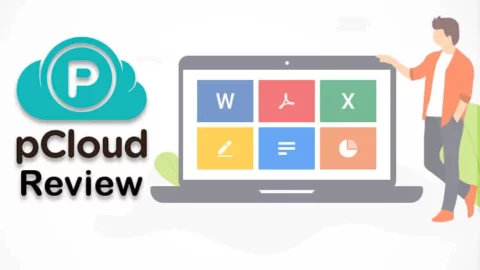Modern startups run on digital tools. From communicating with customers, collaborating internally or protecting their assets, entrepreneurs should know that there’s a digital platform or service for everything.
The truth is, those who don’t embrace technology may be left behind: According to Deloitte research, “digitally advanced small businesses” earned more revenue per employee, were more likely to create jobs and were more likely to have exported over the previous year. And yet, four of five U.S. small businesses aren’t taking full advantage of digital tools available to them.
This gives new startups a chance to gain an instant advantage over the competition. Start off strong with some of the following 13 digital tools and you’ll find further opportunities for integration, growth and success down the road.
Project management
A new business—particularly one with a remote workforce, or one that requires collaboration across various teams—will need help keeping track of its myriad projects and goals. Email isn’t optimal for this: It’s too isolated, and it’s easy for members to be accidentally left off an update if they aren’t included on the latest message.
Project management platforms like Trello or Wrike are more efficient. These cloud-based tools give a full and transparent look at where each important project is in its life cycle and allows everyone to trace its progress from inception to completion.
Communication and collaboration
Conversations between employees can be difficult to keep track of, especially as your business grows. Let teams chat, share files and integrate with other apps through a communication tool like Slack.
Website builder
Having a website is no longer optional for any business—it’s as important as the front door of a brick-and-mortar store. A website says that you’re a legitimate company, and you can use your site to impart news, information and alternative communication channels to your customers.
If you’re not tech-savvy, however, you don’t have to settle. Use a website builder like SquareSpace to create a clean, mobile-optimized site that you can build out to include a store, or promote via integrated marketing tools.
Website performance monitoring
No matter how you build your website, you’ll want to know how people are using it (or not using it) so you can adjust and influence them to make different decisions. Try a tool like Chartbeat or Google Analytics to track your visitors and see if they’re “bouncing” (immediately leaving), what pages they’re clicking into and other data you can mine to increase performance.
Customer relationship management
There’s no reason to operate your customer relationships on the fly any longer. Too often this leads to lost or forgotten leads, or turns repeat customers into ghosts.
Your customer relationship management (or CRM) tool will allow you to log and track every aspect of every relationship you build, letting you know how long it’s been since you’ve followed up with loyal customers, or which users are visiting your website and filling out forms but not closing the deal on a purchase. CRM software like HubSpot helps you stay organized internally and top-of-mind with customers.
Email marketing
Email newsletters are one of the most popular and effective digital marketing tools out there. Use a platform like MailChimp or Constant Contact to easily design, send and review the results of your newsletters. You can drill down and examine who opened your emails, what links they clicked on, and who might be most interested in a follow-up message or offer.
Social media management
Not only do you need a website for your startup, but a presence on all major social media channels is also highly recommended. That means posting, engaging with other users, responding to customer questions and feedback, and otherwise being active to show your commitment to the platform(s).
Rather than spending all day and night checking your Facebook, Instagram and Twitter pages, use a management tool like HootSuite to monitor feeds, schedule posts, interact and engage, and view analytics—all from one single dashboard.
Related: 10 Best Free Digital Marketing Tools for Entrepreneurs
File storage and access
All of your important documents, from your project files to your articles of incorporation, should be stored “off-site,” in the cloud. Get Google Drive or Dropbox storage to safeguard your backups, as well as grant access to users from any location and make updates to important files on the fly.
Virtual private network
Cyber attacks targeting small businesses are on the rise, which means you should take precautions to safeguard your startup from phishers, hackers and other cybercriminals. A VPN allows users to create a secure network connection even when you’re using a public network—such as the public WiFi networks at coffee shops. NordVPN is a popular option for its military-grade protections and thousands of available servers.
If you expect to conduct work from public spaces or collect sensitive data from clients, a VPN is an affordable way to protect you, your employees and your business.
Video conferencing software
Need to correspond with a remote team, or have a productive meeting with clients, prospective employees or consultants? A video conferencing solution that allows multiple parties to join and collaborate is a must. You can try free options like Join.me, but consider that they may max out at around 10 participants, so you can upgrade to a paid service for more attendees.
HR management software
When you’re just starting out, you may not have a full-fledged human resources team. HR management software can do everything from schedule employee shifts and send out company announcements to collect bank account information for direct deposit. There are so many small details that a new business owner could overlook that would then expose the business to issues and lawsuits. Put responsibility for these important tasks on one of the many leading digital HR tools on the market such as GoCo.
Accounting software
Here’s another area of your business that can feel menial and boring until you’re facing an audit by the IRS, or you realize that your cash flow analysis failed to account for this month’s payroll costs. Online accounting software like Xero does the work of an accountant and bookkeeper by tracking your expenses and profits, reconciling debts, sending invoices, creating expense claims, and doing just about anything else that should be noted on your tax returns.
Keyword research tools
If you’re just getting started in the content marketing game and want to figure out how your startup can create thoughtful, interesting content that ranks on Google search, use a keyword research tool like Ahrefs to investigate words and search terms in your industry. Then build your well-written blog posts around these terms and watch your traffic grow.
A new startup that doesn’t have an array of digital tools to automate and simplify tasks, connect remote users and improve operations may soon be running behind its competitors. Start things off on the right foot by investigating these digital tools early—it’ll be easier to scale up with them than to retrofit your tools to your existing, perhaps inefficient, processes.
Source: StartupNation










